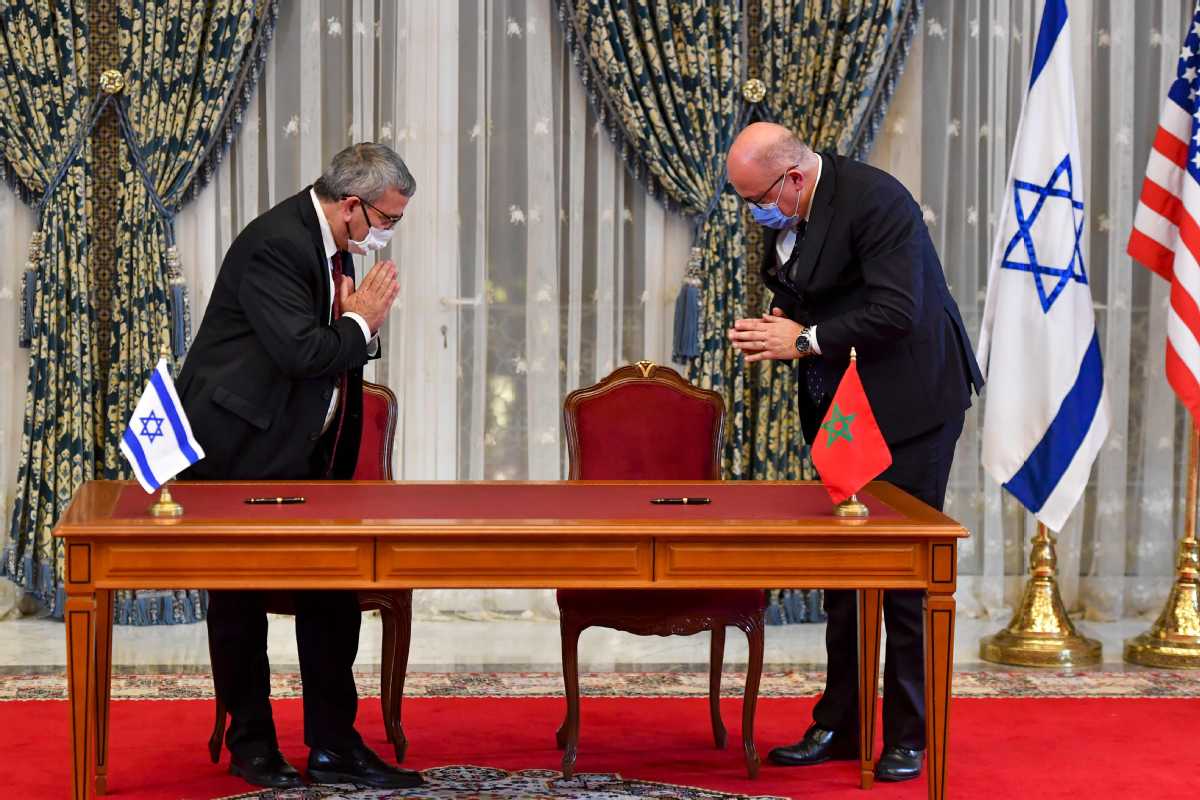Palestinian issue remains vital in Arab-Israeli ties
By LIU XUAN | China Daily | Updated: 2021-01-07 10:01

Taking off from Israel's Tel Aviv airport on Dec 22, the flight landed in the Moroccan capital of Rabat after an hour, safe and sound.
It was the first direct commercial flight between the two countries, marking the latest diplomatic normalization deal between the Jewish state and an Arab country.
The two agreed to "immediately resume full official contacts, and establish full diplomatic, peaceful and friendly relations". They are also expected to sign agreements, paving the way for more moves in the future.
The joint declaration was signed by Morocco's Prime Minister Saad Eddine El Othmani, Israeli National Security Adviser Meir Ben-Shabbat, and, not surprisingly, the senior adviser to US President Donald Trump, his son-in-law Jared Kushner.
The normalization was another US-brokered diplomatic deal.
Moroccan officials described their deal with Israel as a restoration of midlevel ties that Rabat cooled in 2000 in solidarity with Palestinians, who seek statehood in territory captured by Israel in the 1967 Middle East war.
Alongside the announcement of the resumption of relations with Israel in early December, Moroccan King Mohammed VI had assured Palestinian President Mahmoud Abbas of Morocco's "continued and sustained commitment to the just Palestinian cause", based on the two-state solution to that conflict.
But the Palestinians have cried foul and condemned the normalization announcement between Morocco and Israel. The same sentiment appeared when Israel formally announced the normalization of relations with the UAE and Bahrain in August and October, respectively.
Even when Israel has contacts with Arab countries, there isn't a so-called Arab-Israel alliance, given the relationship between Israel and Arab countries is only "a temporary one based on a common threat and interests", said Shu Meng, a researcher at the Middle East Studies Institute at Shanghai International Studies University.
"In the past year or so, Israel's diplomatic actions have been relatively obvious, which has attracted a lot of attention," she said.
In fact, the relationship between Israel and certain Arab countries has "only made limited progress", and is far from reaching the point of becoming an alliance.
"If the relationship between the two sides is to develop further, it will still face obstacles of different religions and ethnicity. Historical issues such as the Palestine-Israel issue have also lain between Israel and Arab countries."
Warming ties with Israel will challenge the allegiance by Arab countries to the Palestinian cause.
Will those agreements forged by Israel harm "the inalienable national rights of the Palestinian people and joint Arab action?"
Most probably, no.
When the UAE and Israel announced "the Abraham Accords" in August that formally normalized relations between the two countries, it became the third Arab country to do so. The UAE followed in the steps of Egypt and Jordan, which signed their peace treaties with Israel in 1979 and 1994, respectively.























